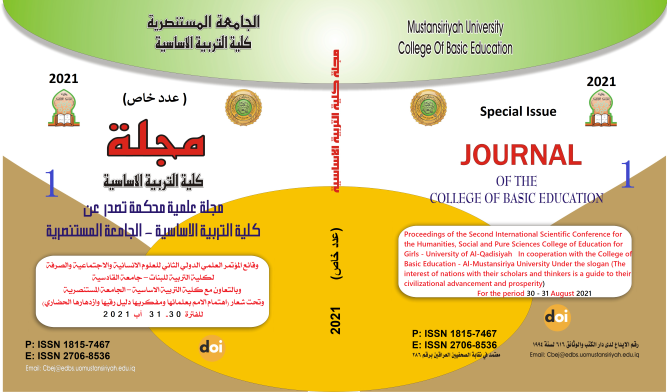The Twentieth Revolution in the Memoirs of the Revolutionary Leaders and Men "Causes and Consequences" - Criticize and Reconstruct –
Main Article Content
Abstract
After the political settlements after the First World War resulted in the imposition of the British Mandate on Iraq, this decision became disappointing for the Iraqis, and a demonstration of Britain's perjury, with its previous promises to Iraq of freedom and independence, as well as statements by other allies countries to give peoples the right to self-determination.
Therefore, the end of that war and the clarity of Britain's position except for the Arab hopes for sovereignty, that some movements opposed to the British in the areas close to Iraq, as well as the role of Iraqi intellectuals in preparing minds for liberation and demanding independence, in addition to the clerics and tribal leaders supporting the anti-British feeling, In addition to other reasons, the Iraqi people believed that it was inevitable that force should be used as a last attempt to compel Britain to change its attitude towards the Iraqis' hopes of obtaining sovereignty and independence, so the result was the outbreak of the Great Iraqi Revolution in 1920.
Article Details

This work is licensed under a Creative Commons Attribution-ShareAlike 4.0 International License.
